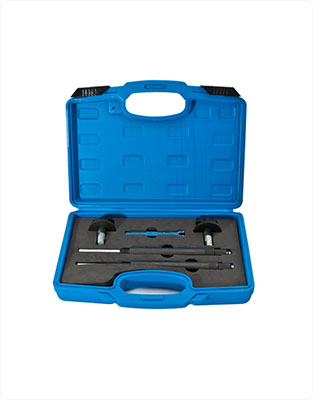Precision Engineering Demands Accurate Timing Tools
In the world of precision machinery, the key to success lies in accuracy and consistency. Whether you are manufacturing intricate watch components, designing aerospace systems, or crafting medical devices, every second counts. Precision engineering requires tools that can synchronize movements with utmost accuracy. This is where timing tools play a pivotal role.
Timing tools are a category of instruments that are designed to measure, control, or set precise time intervals or synchronization in various applications. They are indispensable in maintaining the functionality and reliability of machinery, and their significance cannot be overstated. This article explores the crucial role of timing tools in precision engineering.
Diverse Applications of Timing Tools
Timing tools find applications in a wide range of industries. Here are a few examples:
Automotive Industry: In the automotive sector, timing tools are essential for setting the precise timing of the engine, ensuring optimal combustion and performance. This contributes to increased fuel efficiency and reduced emissions.
Aerospace Industry: Timing tools are used in aircraft to coordinate various systems and ensure safe take-offs, landings, and in-flight operations. In aerospace engineering, even a fraction of a second can make a significant difference in the outcome.
Medical Devices: Medical devices, such as heart pacemakers, rely on precise timing mechanisms to ensure they function correctly. Timing tools help in setting the heartbeat rhythm and the release of medications with high precision.
Watchmaking: Timing tools are a watchmaker's best friend. They are used to calibrate the intricate movements of a watch, ensuring that it keeps perfect time.
The Advancements in Timing Tools
As technology continues to advance, timing tools have become increasingly sophisticated. Here are some notable developments in timing tools:
Digital Timing Tools: Traditional analog timing tools have given way to digital ones, which offer higher precision and ease of use. They often come with advanced features such as data logging, wireless connectivity, and customizable settings.
GPS Synchronization: Timing tools can now synchronize with global positioning systems (GPS) for ultra-precise time references. This is especially crucial in applications where timing needs to be consistent across different locations.
Automated Calibration: Automation has revolutionized the calibration process of timing tools. Automatic calibration ensures that the tools remain accurate over time and reduces the need for manual adjustments.
In conclusion, timing tools are the unsung heroes in the world of precision machinery. They enable engineers and manufacturers to achieve unparalleled levels of accuracy and consistency in their products. From ensuring a car's engine runs smoothly to keeping a watch ticking with precision, timing tools are at the heart of it all. With constant advancements in technology, these tools are only expected to become even more vital in the years to come, playing a central role in the pursuit of perfection in precision engineering.
 EN
EN


















